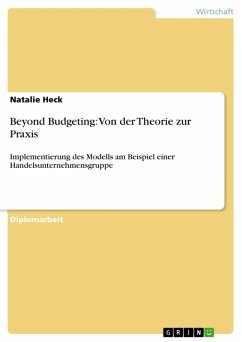Seminar paper from the year 2005 in the subject Business economics - Controlling, grade: 2,0, European University Viadrina Frankfurt (Oder), language: English, abstract: The present paper purposes to highlight two most well known approaches to budgeting, specifically classical and zero-base budgeting. In last years there is much criticism blaming shortcomings of the both. However, such treatment seems to be biased without deep penetration in the nature of budgeting systems. The paper does not intend to summarise information about approaches to budgeting, but rather to explore system specific features that bring the shortcomings about. The paper is composed in the way not to contrast the approaches, that is to show the superiority of one of them, but to draw a profile of the approach with respect to selected criteria. The criteria, introduced in the first chapter, reflect major requirements to the budgeting systems from managerial point of view. They encompass integrity of budget allowances, adherence to strategy, impact on employees behaviour, flexibility and efficiency. Owing to scarce capacity the paper omits aspects specific to management and organization but still affecting the performance of the budgeting approaches. These are, for example, organization of planning process (bottom-up, top-down, etc), corporate culture, incentive structure, degree of activity formalization, management style, etc. The second and third chapter discuss instantaneously performance of classical and zero-base budgeting respectively. Analysis begins with brief description of most important features of the approaches and concentrates extensively on how respective approach meets the requirements. Finally, there will be discussed the most suitable type of production which makes up in part for disclosed shortcomings.
Dieser Download kann aus rechtlichen Gründen nur mit Rechnungsadresse in A, B, BG, CY, CZ, D, DK, EW, E, FIN, F, GR, HR, H, IRL, I, LT, L, LR, M, NL, PL, P, R, S, SLO, SK ausgeliefert werden.









